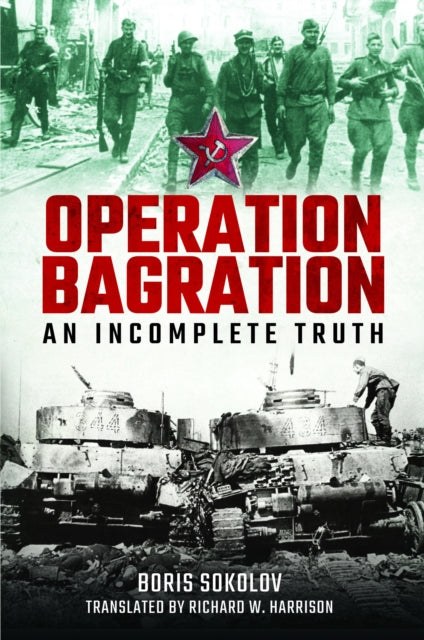Operation Bagration: An Incomplete Truth
Usually shipped within 24 hours
UK deliveries from £5.95
Delivery & Returns
Delivery & Returns
We use the Royal Mail, DHL Express or UPS for our customers. For UK addresses, deliveries under 10kg are a standard £4.95 via Royal Mail Tracked 48 Service. For orders over 10kg and overseas customers, postage is calculated for you at checkout once you have entered your postal address. This price, does not include any potential custom charges that may apply, depending on the product or destination, as every country has very different import duties / taxes. Online exclusive products (such as trainers) will be delivered to you directly from the printer, separate from other items in your order, but your postage fee covers ALL items in your order.
If you are unhappy with your purchase, please email shop@tankmuseum.org within fourteen (14) working days of receiving your goods, and return it to us at the address below, in its original condition, unopened (with any seals and shrink-wrap intact) and we will issue you a full refund or replace it. Goods must be returned at your own cost. If the item is faulty, you do not need to return it, we will send you a replacement free of charge.
Description
Description
By Boris Sokolov
Hardback
Operation Bagration analyses the great Russian offensive in Belorussia in the summer of 1944 covering the planning of the operation as well as the German plans of the summer campaign of 1944. Due in stock 30th July 2024.
In depth research sets out to determine the real ratio of the Soviet and German forces as well as their actual losses during the operation. As well as some good decisions, command on both sides made some crucial mistakes as well as main tactical errors all of which are studied in this book to produce a fully rounded view of the campaign and highlights a connection to Operation Overlord by proving that it was only due to the landing at Normandy that the Soviet forces were able to destroy the German Army Group Centre while the elite mobile forces were concentrated in France.
![Operation Bagration: An Incomplete Truth Book [variant_option4]](http://tankmuseumshop.org/cdn/shop/files/9781399050920.jpg?v=1748336884&width=1214)

![Operation Bagration: An Incomplete Truth Book [variant_option4]](http://tankmuseumshop.org/cdn/shop/files/9781399050920.jpg?v=1748336884&width=88)
![Tank Museum Playing Cards Game [variant_option4]](http://tankmuseumshop.org/cdn/shop/files/ProductShoot_10_10_2025035.jpg?v=1760358498&width=176)
![Tank Museum Wrapping Paper - Two sheet pack Wrapping Paper [variant_option4]](http://tankmuseumshop.org/cdn/shop/products/Wrapp_Paper_All.jpg?v=1748337915&width=176)
![Operation Bagration: An Incomplete Truth Book [variant_option4]](http://tankmuseumshop.org/cdn/shop/files/9781399050920.jpg?v=1748336884&width=640)



